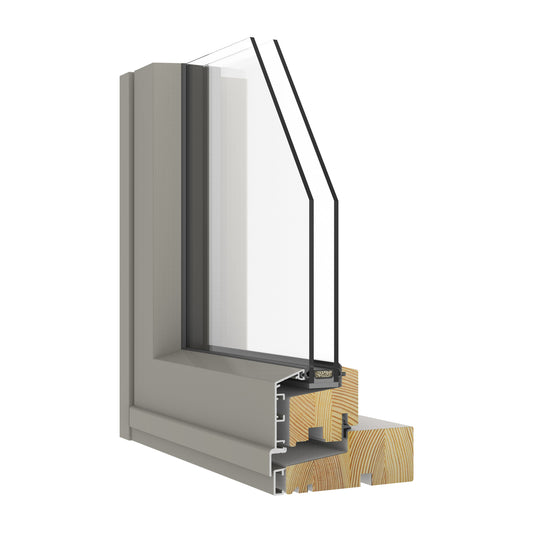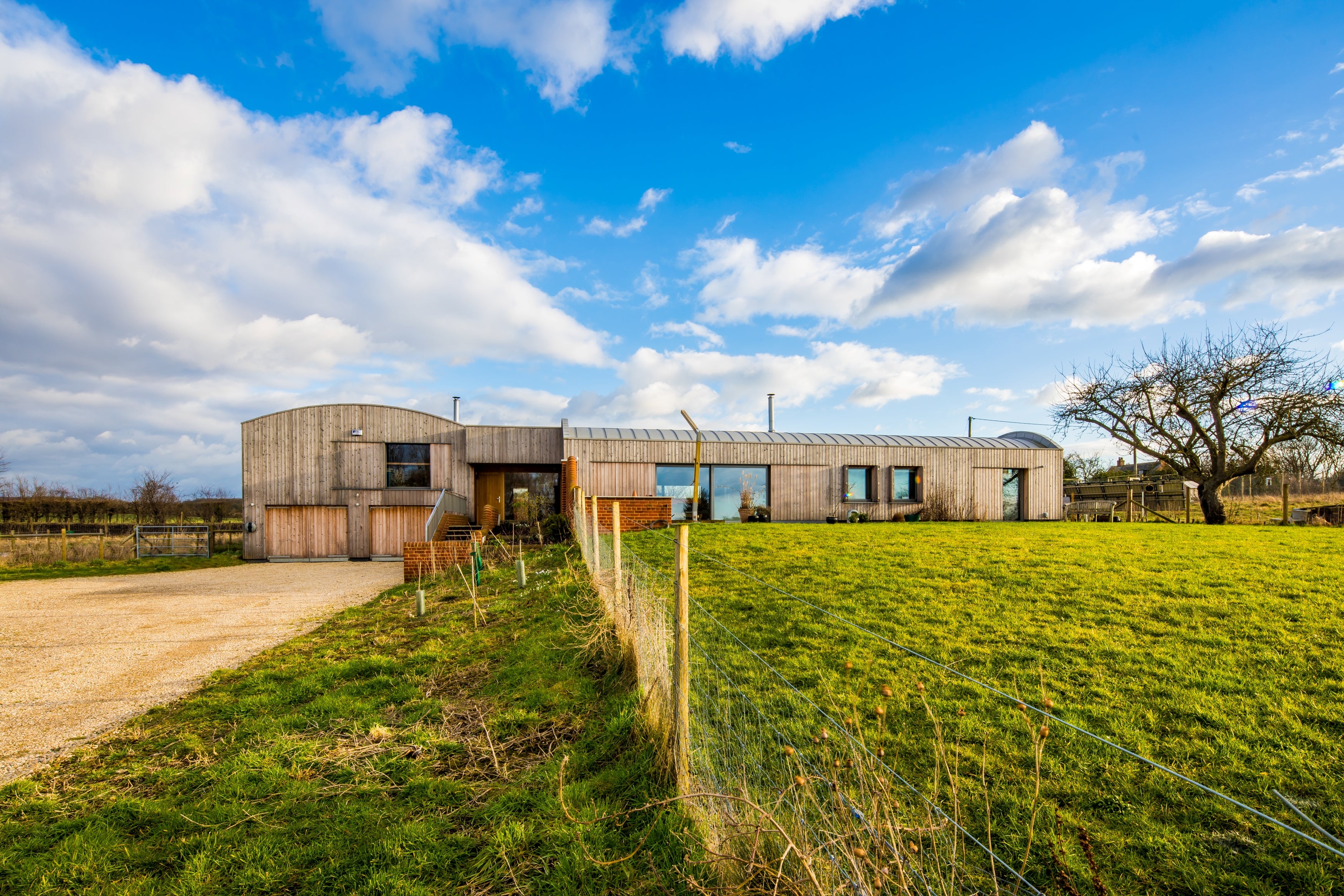
All you need to know about composite windows
A composite material is composed from at least two or more constituent materials.
The individual materials used to form the composite generally have very different chemical and / or physical properties and remain identifiable within the composite.
The combination of the component parts results in a material that has unique properties and is superior to the individual elements.
Best Selling Composite Windows
-
Outward Opening Alu-Clad Window (P11A)
Regular price £0.01 GBPRegular priceUnit price / per -
Outward Opening Alu-Clad Window (P31A)
Regular price £0.01 GBPRegular priceUnit price / per -
Outward Opening Timber Window (P31T)
Regular price £0.01 GBPRegular priceUnit price / per -
Outward Opening Alu-Clad Window (P41A)
Regular price £0.01 GBPRegular priceUnit price / per
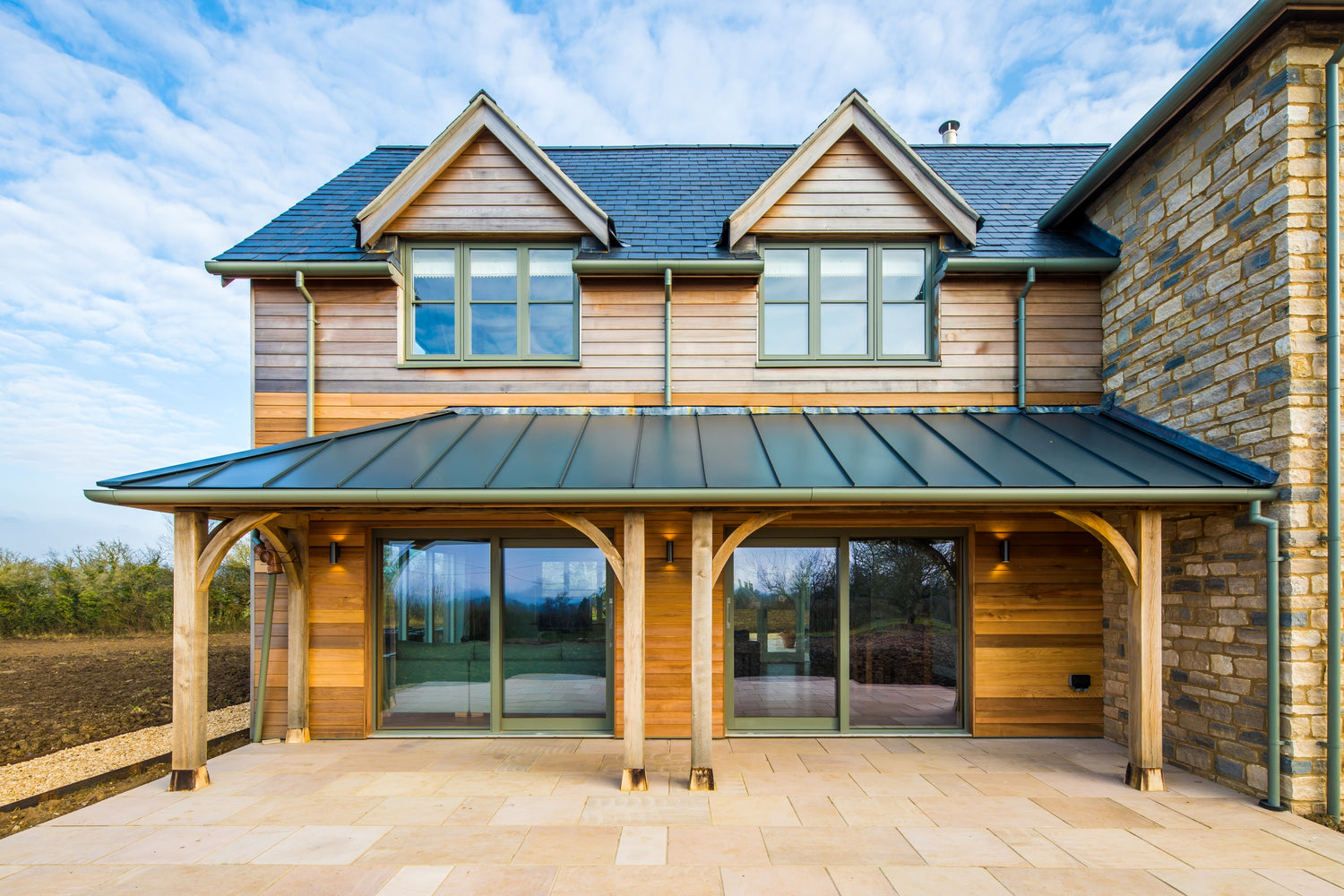
What are composite windows?
Composite windows are manufactured by combining two different materials, which together provide hybrid properties.
There are currently two main types of composite window on the market - one comprises an aluminium-clad timber frame and the other an aluminium-clad UPVC frame.
Aluminium-clad timber frame windows are produced largely of timber, while aluminium-clad UPVC windows are mostly made of UPVC. Both frame types are similarly overlaid externally with a powder-coated aluminium profile. This creates a more durable and longer-lasting product, which requires almost no maintenance.
Aluminium-clad windows provide a stylish, sleek alternative to traditional timber or UPVC products. They also provide the opportunity to have a dual colour finish, so you enjoy greater design freedom inside and out.
Aluminium-clad timber or aluminium-clad uPVC?
We are committed to delivering high performing, energy efficient windows and doors, which are both aesthetically pleasing and durable.
As such, our composite windows have aluminium-clad timber frames, not uPVC. Why? We use timber for its substantial advantages over uPVC.
Some of these include:
-
Aesthetics & Design
Our timber frames make a stylish statement and come in a range of different profiles.
They are custom-manufactured, unlike generally mass-produced UPVC frames.
Engineered timber tends to be stronger than UPVC, enables more weight bearing and so facilitates production of larger, more impressive units than could otherwise be manufactured from UPVC.
-
Sustainability & Performance
Wood has low thermal conductivity, making the timber frame of our alu-clad windows an excellent insulator.
Our best-performing alu-clad products deliver better insulation and U-values than UPVC windows. It is also more environmentally friendly to work with timber than UPVC.
-
Lifecycle & Cost
In the short-term, alu-clad timber windows are usually a more expensive option than alu-clad UPVC windows.
However, when the lifecycle and thermal performance of each frame type are analysed, we start to see how the long-term cost benefits of timber - reduced heating bills, long lifespan - outweigh the initial savings of uPVC.
It’s also important to consider the potential value increase to a property for each frame type. Installing timber frame windows in your house increases its potential value over and above uPVC installation.
Which windows are right for you?
Take our short survey to discover the perfect windows for your project.
The benefits of composite windows
When compared to all-aluminium, all-timber and uPVC products, composite windows provide numerous advantages.
- Norrsken's stylish alu-clad timber frame windows are simply more thermally efficient than all-aluminium or uPVC products.
- The streamlined powder-coated exterior of our composite windows has near-zero maintenance requirements – whereas all-timber windows can require involved maintenance to last, and even UPVC windows require more upkeep than alu-clad models.
- The lifespan of composite models usually exceeds that expected for competition products.
- In terms of production, thermal performance and disposal, they are more sustainable and - environmentally – the obvious fenestration solution.
The blend of materials used to manufacture our composite windows deliver exclusive hybrid properties superior to all-aluminium, all-timber, all-UPVC and UPVC-alu-clad products.
Your questions answered
Have a question? You’re not alone. We’ve answered some of the most common queries about Composite Windows below.
Collapsible content
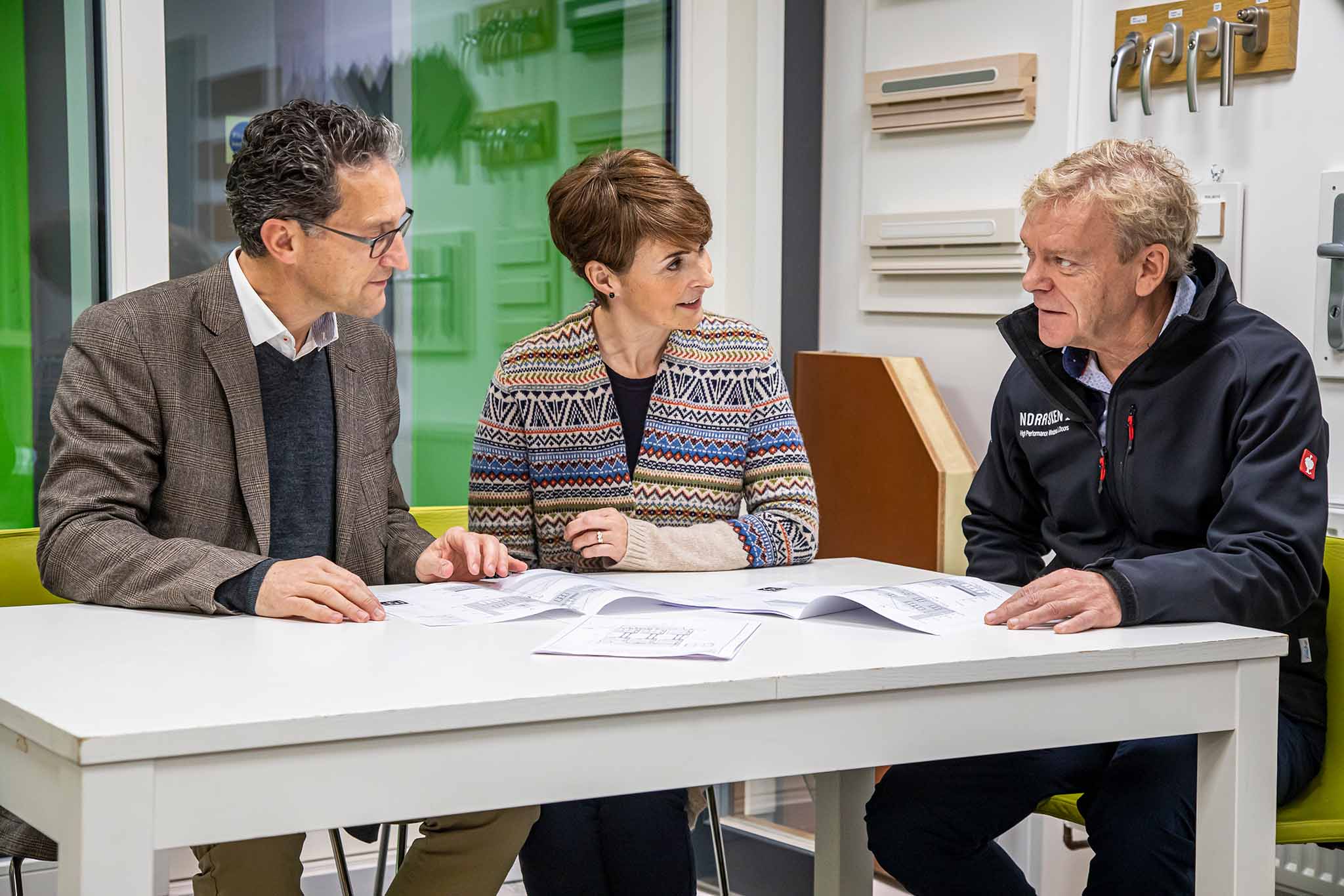
What are composite windows?
Composite windows are manufactured by combining two different materials, which together provide hybrid properties.
There are currently two main types on the market - aluminium-clad timber windows and aluminium-clad UPVC windows.
Aluminium-clad timber or aluminium-clad upvc?
We recommend timber composite windows for their many advantages over UPVC.
Including the durability and strength of engineered timber, better insulation and U-values than UPVC windows, a longer lifespan and the potential value increase to a property.
Are composite windows better than uPVC?
Timber composite windows usually exceed uPVC alternatives in thermal performance, have a much longer lifespan than uPVC windows and have a lower carbon footprint.
Energy savings over this period make timber composite windows the more cost-effective option long term, even though uPVC windows are cheaper to buy. (Source: Researchgate)
Are composite windows worth it?
Composite windows tend to be more expensive than uPVC models, but offer a wider range of benefits.
These include better thermal performance, aesthetic appeal, a longer lifespan, use of more environmentally friendly materials and lower maintenance.
They are certainly the smarter choice for a well-insulated home in the long run.
Can composite windows be painted?
Our aluminium-clad timber composite windows can be finished in any RAL colour with a powder-coated finish.
Dual colour finish - different colours inside and out - is available as standard, so there is no shortage of options when choosing the colour of your windows! Internally the windows can be repainted later if desired.
How long do composite windows last?
With proper maintenance, composite windows can last upwards of 50 years.
A considerable uplift from the 20-odd year lifespan of uPVC windows.
Who sells composite windows?
At Norrsken, we supply and install beautiful, durable and energy-efficient composite windows and doors in many types of domestic and commercial projects.
With U-values as low as 0.64, several of our models are suitable for use in Passive House, retrofit and low-energy projects.
Choosing Norrsken isn't just about windows and doors; it's about choosing a partner in your building journey
At Norrsken, we supply and install the UK's finest double and triple-glazed timber alu-clad windows and doors. We take pride in exceptional craftsmanship, meticulous attention to detail, and outstanding customer service.
From initial consultation to after-sales support, we're here to ensure your complete satisfaction. So ditch the window search blues and embrace a smoother, more streamlined building experience with Norrsken by your side. Explore our stunning range of alu-clad timber windows and doors today, and discover the Norrsken difference.
-
Our Window Range
Premium design, precision engineering -
Our Door Range
High performance insulated entryways
Unmistakably trusted.
The highest compliment is a recommendation. These are the voices of those who placed their trust in us.
"Excellent Company from start to finish… If only every window supplier operated like this! I have used many others over the years on various projects but Norrsken far exceeded all of them… I hope this helps you make a decision for what is probably a large chunk of your budget… They are totally worth it"
Angela Smith
Self Builder
“Having used Norrsken in the past we were happy to recommend them to one of our clients who was looking for the best sound proofing and weatherproofing they could get being set on a hill top overlooking the sea and facing strong westerly winds. They were not disappointed. A quality product, delivered well and on time. Thankyou.”
Ken Pearson
Homeowner
"Fantastic professional service, from the original design to the final installation. The triple-glazed windows and doors that have been fitted to our new house are of a very high quality and look amazing. We definitely made the right choice when we decided to use Norrsken, nothing is too much trouble for them."
Nigel
Homeowner
"I did my research before contacting Norrsken but they had come highly recommended by our Architect for our Passive House self build.
From the first meeting with Nick we felt confident that they were the Company for us."
Ali and Brian Manning
Passive House Self Builders
“The quality of the triple glazed, alu-clad windows and doors is superb. They feel so reassuringly solid ... I opted for a wood stain for the internal finish on the frames, and am so glad I did, as it shows off the beauty of the wood perfectly. The whole process from order to installation went smoothly. I thoroughly recommend Norrsken.”
Gareth
Homeowner
"Norrsken provided attentive service from drawings to on-site installation for our project at National Trust Stourhead and we would definitely recommend and repeat commission them on future projects."
Charlotte Hill-Baldwin
Architect, H-B Designs
“From our very first interaction to the aftercare support, Norrsken has been exceptional. The quality of their windows is outstanding - beautifully designed, expertly crafted, and a real standout feature in our home. They've truly elevated the overall look and feel of the house.”
Neil Southwell
Self Builder Homeowner
Related resources
View all-

Triple-Glazing: Is the investment worth it for ...
Lower energy bills, warmer rooms and quieter living. Discover when triple glazing is worth the investment.
Triple-Glazing: Is the investment worth it for ...
Lower energy bills, warmer rooms and quieter living. Discover when triple glazing is worth the investment.
-

The Art of Home
Explore how triple glazing enhances warmth, comfort, and clarity in your home's design.
The Art of Home
Explore how triple glazing enhances warmth, comfort, and clarity in your home's design.
-
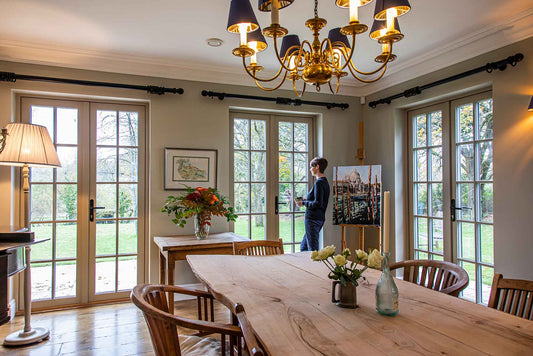
Quiet revolution - the power of triple-glazing ...
Discover how triple glazing helps reduce noise pollution and creates peaceful interiors in busy locations.
Quiet revolution - the power of triple-glazing ...
Discover how triple glazing helps reduce noise pollution and creates peaceful interiors in busy locations.
-

The value of alu-clad timber windows
A deep dive into the benefits of alu-clad timber windows: durability, performance, and design.
The value of alu-clad timber windows
A deep dive into the benefits of alu-clad timber windows: durability, performance, and design.

